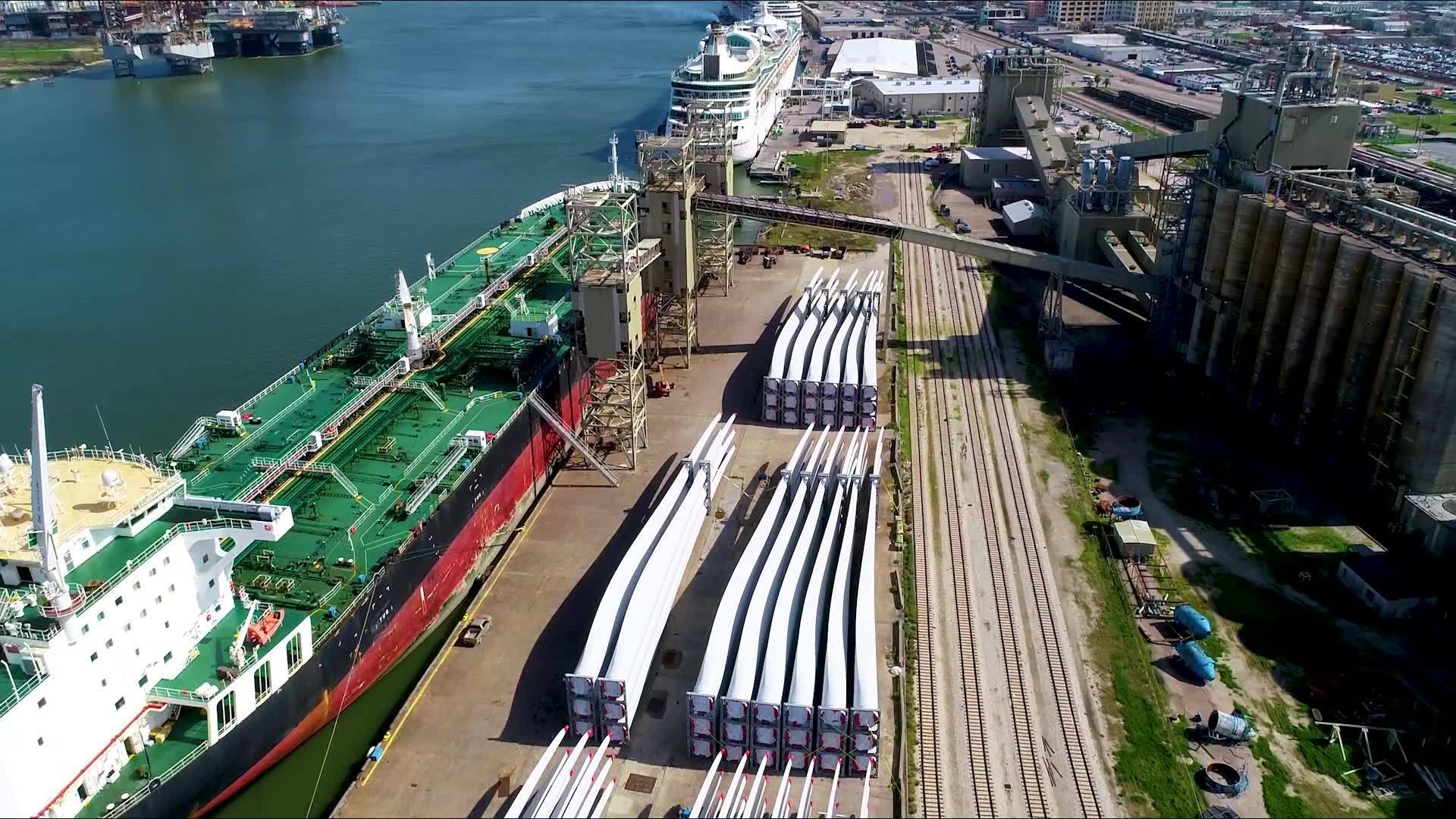From improving air quality to reducing waste, Galveston Wharves is identifying impactful ways to make long-term changes to improve the environment. Guided by Green Marine, a voluntary environmental program for North America’s maritime industry, the port staff is researching, planning, and implementing a number of environmental programs.
The Green Marine environmental certification program addresses key environmental issues through 12 performance indicators that include greenhouse gases, air emissions, spill prevention, waste management, environmental leadership, and community impacts – some applicable to shipping activities, others to landside operations.
Galveston Wharves was certified in June, making it only the second Texas port participating in the program. Joining Green Marine helps the port identify and implement best practices, manage our environmental initiatives, measure our progress, and strive for continuous improvement. Here are just a few of the programs that we are working on
Renewable Energy
According to the U.S. Environmental Protection Agency, local governments can dramatically reduce their carbon footprints by purchasing electricity from clean, renewable sources. The port has set out a plan to fully transition within 5 years to electricity providers who use sustainable power sources.
Shore Power
When docked, ships are typically powered by diesel auxiliary engines, which produce air emissions. Shore power, which allows ships to plug in to the local electricity grid and turn off those engines, is a cleaner alternative. While it brings environmental benefits, shore power involves significant infrastructure investments and other costs.
The port is partnering with Texas A&M University at Galveston on an extensive cost-benefit study that includes the port’s costs to install shore power infrastructure, estimated demand over the next 5-10 years and financing opportunities.
Separate from the study, we are partnering with Royal Caribbean International (RCI) to determine the feasibility of providing shore power to RCI ships at the new cruise terminal being built and set to open in 2022 at Pier 10.
Green Building
Speaking of the new cruise terminal, RCI has designed the $110 million, 150,000-square-foot building to meet LEED (Leadership in Energy and Environmental) certification standards. To be LEED-certified, the building must meet a global set of health, efficiency, and sustainability standards.
Built by RCI and owned by the port, the terminal would be among just a handful of LEED-certified projects in Galveston.
LNG Fuel Bunkering
As the international maritime industry transitions from heavy diesel fuel to clean-burning natural gas, the port has the opportunity to be the location for the area’s first LNG fuel production and bunkering provider. The operation would be based on Pelican Island and supply ships calling on the ports of Galveston, Houston, and Texas City.















